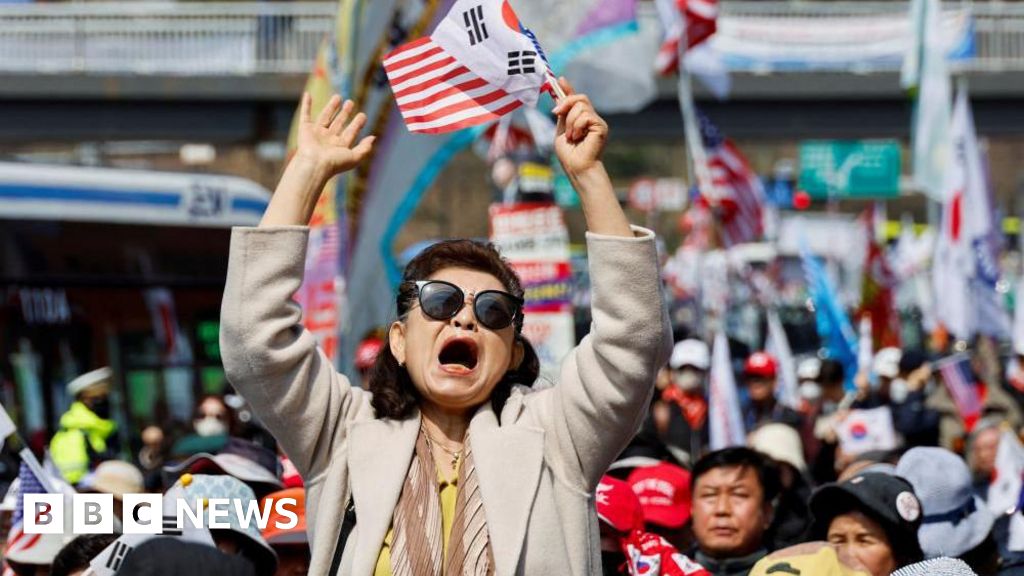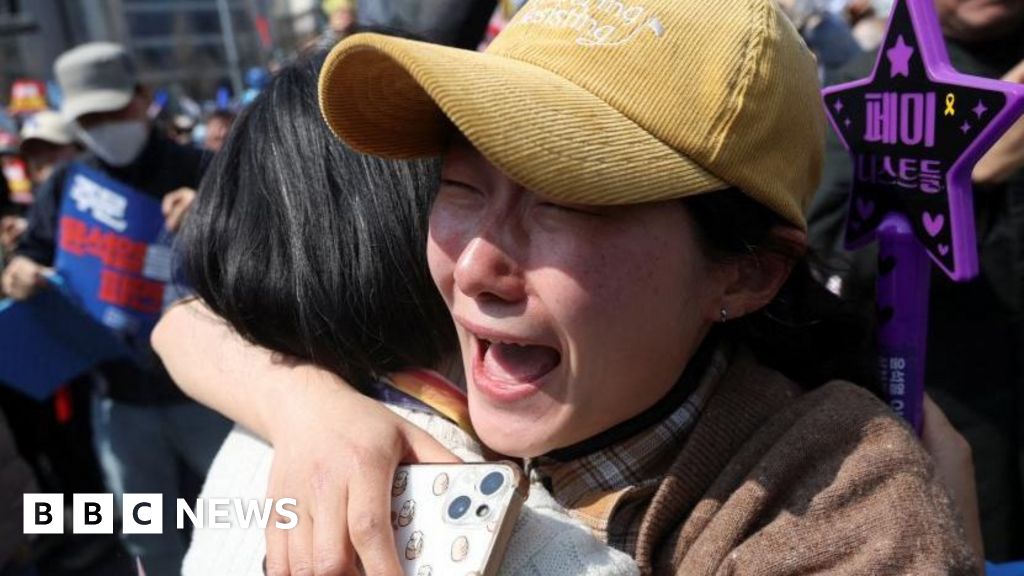ARTICLE AD BOX
By Sam Cabral
BBC News, Washington
Image source, Getty Images
Image caption,A nearly all-white jury has been seated in the trial of three white men accused of killing Ahmaud Arbery, a black jogger
A nearly all-white jury, with one black member, has been seated in the Georgia murder trial of three white men over the shooting of a black jogger in 2020.
The judge noted the appearance of "intentional discrimination" in jury selection but said the trial over Ahmaud Arbery's killing would proceed.
Gregory McMichael and his son Travis have pleaded not guilty, saying they acted in self-defence.
But prosecutors argue there was racial bias at play.
Opening arguments begin on Friday.
Last May, Mr McMichael, 64, Travis, 34, and neighbour William Bryan - who filmed a video of the incident - were arrested. All three have denied all charges and any accusations of racism.
Mr Arbery was out on an afternoon run on 23 February when he was confronted by the McMichaels, who were armed with a pistol and shotgun. Lawyers for Mr Arbery's family have said he was unarmed at the time.
The father and son later told police they believed the jogger resembled the suspect in a series of alleged break-ins and accused Mr Arbery of attacking Travis while they attempted to make a "citizen's arrest".
Jury selection lasted two and a half weeks. On Wednesday, the prosecution accused the defence of eliminating potential jurors based on race, noting that defence attorneys used 11 of their allotted 24 strikes to reject black jurors.
Attorneys for the McMichaels countered that they were "stuck between a rock and a hard place" because many prospective jurors had already formed attitudes toward the men.
The prosecution meanwhile used all 12 of its strikes to reject white jurors.
"There appears to be potential intentional discrimination in the panel," Judge Timothy Walmsley said, but he concluded the court lacked the authority to reseat a jury panel as there were valid reasons aside from race for rejecting the individuals.
The lopsided result may have been inevitable, said Page Pate, a local defence lawyer who is not attached to the case.
"This is a case that is going to involve a lot of testimony and evidence about racial prejudice and racial feelings, especially in this South Georgia community," he told the BBC. "It's a great place but it's very divided racially."
The trial is taking place in Glynn County, a small coastal community where Mr Arbery lived.
The perils of jogging when you're black
Mr Pate said for black Glynn County residents, "there's a strong likelihood you either knew Ahmaud Arbery or someone in his family, because it's a very close knit community, or you were involved on social media or in demonstrations".
"As a result, I think there was more scrutiny placed on potential black jurors just by nature of their community."
Mr Pate added that Judge Walmsley's comments on Wednesday were to be expected but should have been worded differently in order to avoid further controversy.
He was following the law, said Mr Pate, but the phrasing may not have made sense to most people.
Denise De La Rue, a trial consultant in Georgia, pointed out that Americans from ethnic minorities tend to be under-represented on most juries, but there should still have been more black jurors vetted.
She noted that, because the county's black population hovers around 26%, an ideal number would have been three.
"That's the problem with having the trial in this venue," said Ms De La Rue. "What we're left with is something that looks pretty lopsided."
But she suggested that, given the highly charged nature of the case, "many of the white jurors left on the panel would be very concerned about returning a verdict that appeared to be a racist one".
"I don't think [the makeup of the jury] means the defence has an easy road ahead."

 3 years ago
79
3 years ago
79








 English (US) ·
English (US) ·